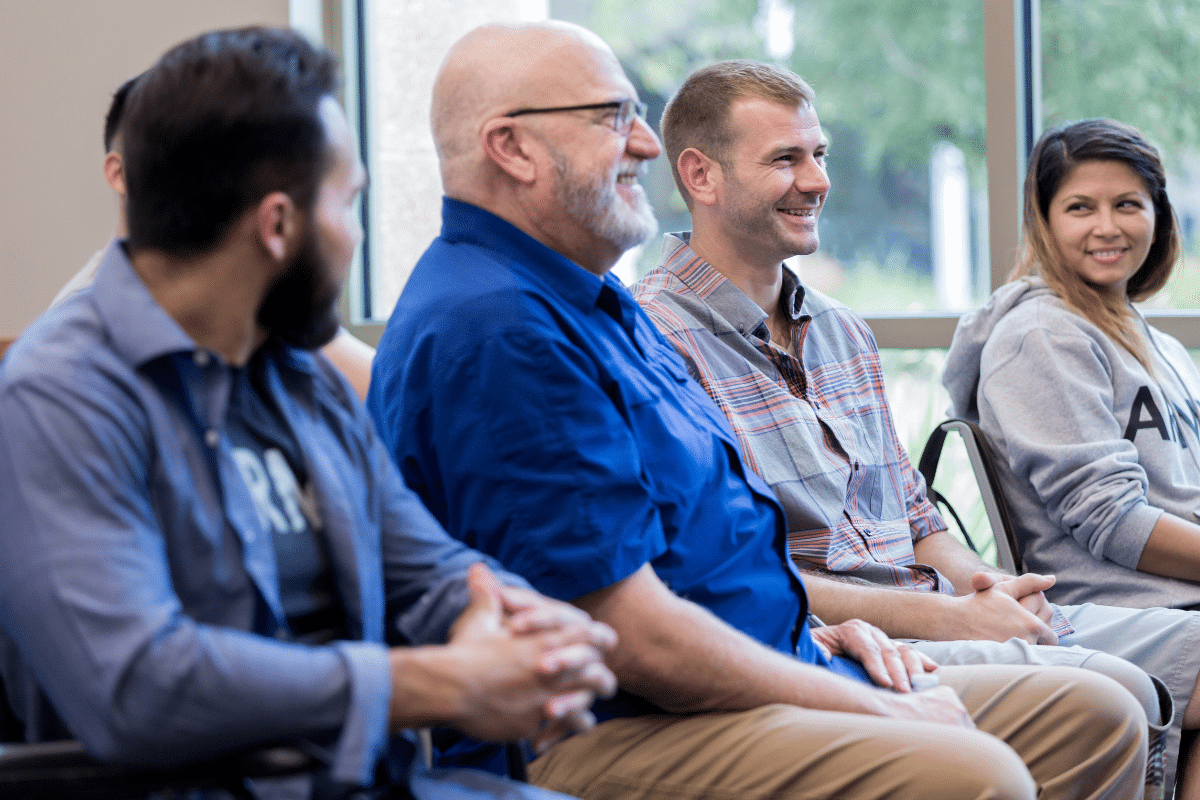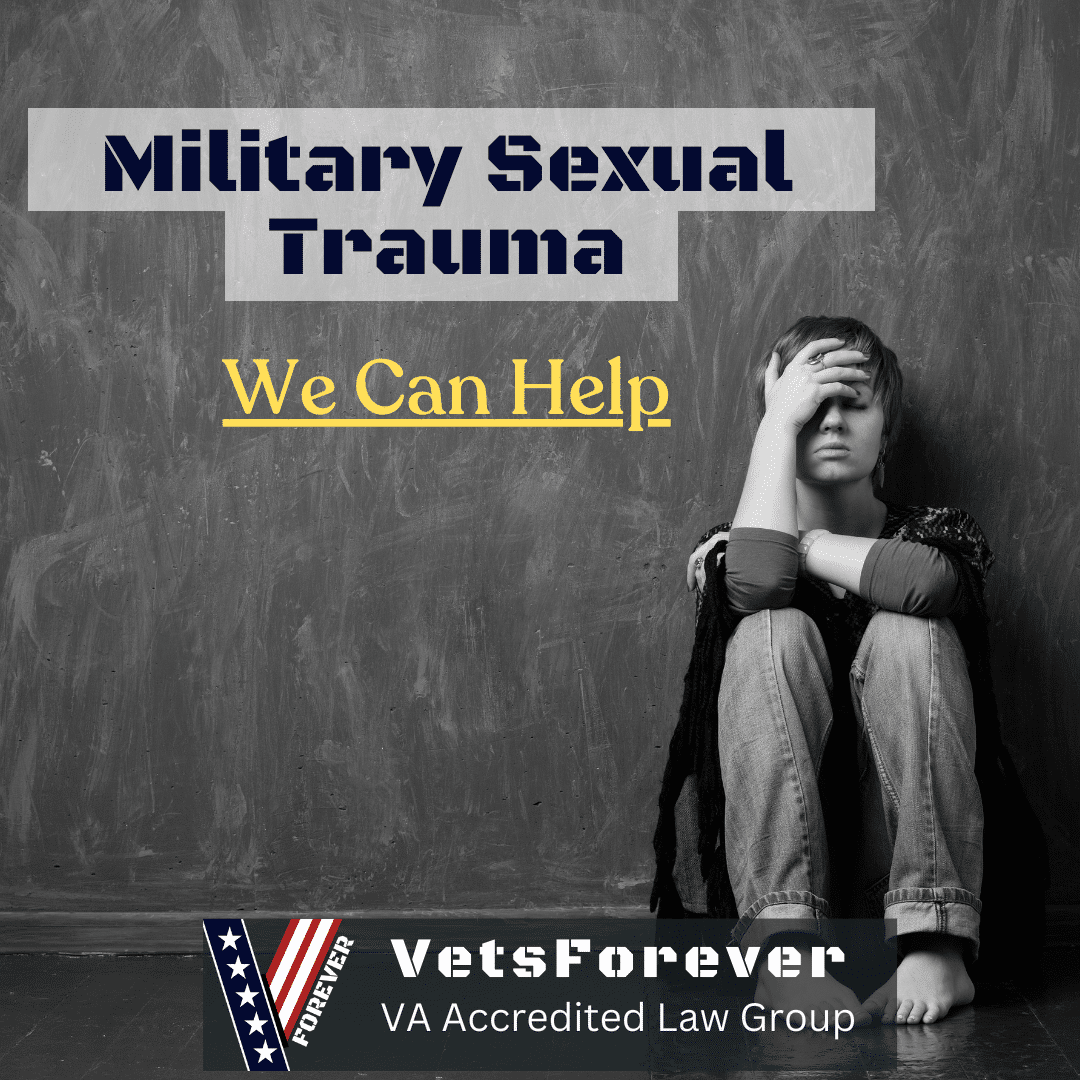
Validating Your Experience: Why Non Combat PTSD Veterans Deserve to Be Heard
Veterans who’ve experienced traumatic events during their service, whether combat-related or not, deserve to have their voices heard and their experiences validated. It’s crucial to acknowledge the impact of non combat PTSD and the importance of seeking help and support for affected veterans.
In this article, we’ll explore why non combat PTSD veterans deserve to be heard and how they can receive the help and support they need to manage their symptoms and lead fulfilling lives. We’ll also discuss the resources and services available to veterans with this disability.

Understanding Non Combat PTSD
It’s a common misconception that PTSD can only happen through physical contact, but this is false. It can be caused by experiencing or witnessing traumatic events that do not involve physical contact. Non combat PTSD examples include experiences such as military sexual trauma (MST), serious accidents, or witnessing traumatic events, including the sudden death of a comrade.
Symptoms can include flashbacks, anxiety, and avoidance of certain situations or people. It differs from other types of PTSD in that traumatic events may not involve physical contact. It may be difficult for raters without traumatic experiences to understand how non combat related PTSD can be just as tangible and real as combat-related ordeals. However, it’s crucial to recognize that the symptoms can be just as debilitating as other forms of PTSD and that seeking help and support is just as important.
PTSD Rating Basics
The VA rates PTSD based on the severity of the symptoms and their impact on the veteran’s life. The VA considers factors such as the frequency and severity of the symptoms, their effect on the veteran’s work and social life, and the efficiency of the veteran’s coping strategies.
A proper PTSD VA rating is essential for accessing appropriate treatment and disability compensation. The VA offers different levels of PTSD ratings, ranging from 0% to 100%, depending on the severity of the symptoms, and many veterans receive a rating below 100%. Being rated at less than the maximum is problematic because the amount of compensation received by a disabled veteran is directly related to their rating percentage.
VA PTSD Increase from 50 to 70
If your symptoms have worsened since your initial PTSD VA rating, you can apply for an increase. The VA offers a process for obtaining an increase in rating, which may include submitting new evidence and undergoing a VA examination.
Increasing your rating can be complex, and seeking guidance from a qualified mental health professional or legal assistance may be helpful. However, it’s worth pursuing an increase in rating if your symptoms have worsened and are impacting your quality of life.
Military Sexual Trauma Disability Rating

One unique challenge for veterans who experience PTSD due to MST is the requirements for obtaining a disability rating for a condition that’s often misunderstood. The VA has a specific process for obtaining a disability rating for MST-related PTSD, which can differ from other PTSD ratings.
It’s essential for veterans seeking help with their MST-related PTSD claims to work with a qualified mental health professional who can provide documentation of their symptoms and the impact the trauma has had on their life. Resources are available for veterans seeking support for their MST-related PTSD, including the Veterans Crisis Line and the VA MST Support Team.
PTSD Claim Denied
One common reason for a denied PTSD claim is a lack of evidence. To receive disability benefits for PTSD, a veteran must have a current diagnosis and provide evidence that the PTSD relates to their military service. Valid evidence can include the following:
- Medical records.
- Buddy letters from friends or family members.
- Personal statement in support of claim
- Reports from mental health professionals.
- If a veteran’s evidence is insufficient or does not demonstrate a clear link between their military service and PTSD, their claim may be denied.
Another reason for a denied PTSD claim is improper documentation. The VA has specific requirements for the documentation of PTSD claims, and if a veteran’s documentation does not meet these requirements, their claim may be denied.
For example, the VA requires that a qualified mental health professional diagnose PTSD and that the diagnosis is documented in a specific way. If a veteran’s documentation does not meet these requirements, their claim may be denied.
If your claim is denied, you must thoroughly understand the appeals process. Veterans have the right to appeal their denied claim, and they can pursue several levels of appeal.
Finally, veterans unable to work due to PTSD can pursue a rating by claiming unemployability. This avenue requires veterans to prove that their PTSD prevents them from obtaining and maintaining employment, thus preventing them from earning a living to sustain themselves.
By understanding these three primary avenues, veterans can determine the best path to pursue that addresses their specific circumstances and increase their chances of receiving a favorable VA PTSD rating.
- The first level of appeal is the VA regional office, where a veteran can submit new evidence or argue that the initial decision was incorrect.
- If the regional office upholds the denial, a veteran can then appeal to the Board of Veterans’ Appeals, where a judge will review the case and decide.
- If the Board of Veterans’ Appeals denies the claim, a veteran can appeal to the Court of Appeals for Veterans Claims and ultimately to the Federal Circuit Court of Appeals.
If a veteran’s PTSD claim has been denied, seeking legal assistance from a VA Accredited Attorney or Law Group like VetsForever may be helpful. These professionals can provide guidance and support throughout the appeals process and help protect a veteran’s rights.
Buddy and Spousal Letters
One way to support your non combat PTSD claim is to include Buddy and Spousal Letters. Buddy Letters and Spousal Letters are written by individuals knowledgeable about your military experience, including the events that caused your PTSD. The letters should be written by people unrelated to you, such as friends or fellow service members.
Buddy and Spousal Letters can provide additional evidence for your claim. These letters should provide details about the events that led to your disability and how the trauma has impacted your life. They can also offer insights into how your PTSD symptoms have affected your ability to work, socialize, and carry out everyday activities.
Buddy and Spousal Letters should focus on specific details and events. The letter should be written clearly and concisely and provide as much information as possible about the events that caused your non combat PTSD. It’s also helpful to include information about how your symptoms affect your daily life, such as how the trauma impacts your ability to work, socialize, and carry out everyday activities.
The Importance of Validation
Validation is crucial for individuals with non combat PTSD, and it can be difficult for people who have not experienced trauma to understand its impact on an individual’s life. Invalidating behaviors, such as dismissing someone’s experience or telling them to “get over it,” can make an individual feel even more isolated and alone.
Validation can help individuals with non combat PTSD feel heard, understood, and less alone. Active listening and empathy are vital components of validation, and this involves listening to what the individual is saying, acknowledging their feelings, and expressing empathy for their experience.
Seeking Help for Non Combat PTSD
Seeking help for this severe disability is an essential step toward recovery. The VA offers various services and resources to veterans seeking help, including therapy and medication. The first step in seeking help is finding a qualified mental health professional with experience working with veterans and non combat PTSD.
It’s important to remember that seeking help for non combat PTSD is not a sign of weakness, and it takes strength and courage to confront and work through the trauma you’ve experienced. The road to recovery may not be easy, but it’s possible with the proper support and resources. There are several evidence-based treatments available for non combat PTSD.
Cognitive Behavioral Therapy (CBT)
Cognitive Behavioral Therapy (CBT): CBT is psychotherapy that helps individuals change negative thinking and behavior patterns. It can be beneficial in treating PTSD, as it can help individuals identify and challenge negative thoughts and beliefs about themselves and their traumatic experiences. CBT can also help individuals develop coping skills to manage their symptoms, such as anxiety and depression.
Eye Movement Desensitization and Reprocessing (EMDR)
Eye Movement Desensitization and Reprocessing (EMDR): EMDR is a type of therapy that involves recalling a traumatic event while following a therapist’s hand movements or a different kind of bilateral stimulation. This technique is thought to help the brain process the traumatic memory more adaptively, reducing the intensity of the emotional and physical responses to the memory.
Prolonged Exposure Therapy (PE)
Prolonged Exposure Therapy (PE): PE involves gradually exposing an individual to the memories, situations, and objects associated with their traumatic experience. This exposure can be done through imaginal exposure (recalling the traumatic event in detail) or in vivo exposure (facing situations or objects associated with the traumatic event). This therapy aims to help individuals meet their fears and develop new coping skills to manage their symptoms.
The best course of action is to find a qualified mental health professional who can help you determine the appropriate treatment for your individual needs.
Summary
Non Combat PTSD is a genuine form of PTSD that can develop from experiencing or witnessing traumatic events that do not involve physical contact. Seeking help is not a sign of weakness, and various evidence-based treatments are available.
Buddy Letters and Spousal Letters can effectively provide additional evidence to support a non combat PTSD claim, and validation is crucial for individuals to adequately recover. Working through the trauma you’ve experienced and moving towards a brighter future is possible with the proper support and resources.

